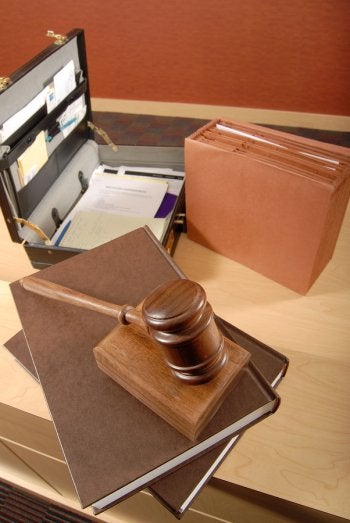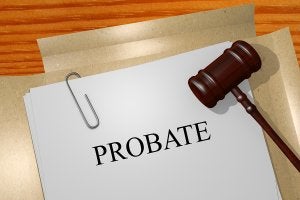-
The Basics of Estate Tax Planning
One of the questions most frequently asked of estate planning attorneys near The Woodlands is how a person can minimize estate taxes for the benefit of the heirs. Estate taxes are primarily a concern for individuals who plan to leave sizable legacies to their beneficiaries, but everyone can benefit from consulting an estate planning attorney to discuss how state and federal estate taxes might affect their loved ones. Skillful estate planning attorneys can recommend smart strategies that minimize estate tax ( E.g ., a living trust).
Texas Estate Taxes

Prior to 2005, Texas had a “pick up tax.” Although the pick up tax was a separate estate tax, it did not increase or decrease the total estate tax bill. Rather, the pick up tax allowed the Texas Comptroller’s Office to take a portion of the federal estate tax bill. On January 1, 2005, the pick up tax was phased out under the Economic Growth and Tax Relief Reconciliation Act (EGTRRA). This is a federal law that eliminated pick up taxes from all states, not just Texas. Some states later passed state laws to collect separate estate taxes. Texas repealed its inheritance tax , which means that state-level estate taxes are not collected if the property was transferred after the effective date of September 1, 2015. Estate taxes accrued prior to this date must still be paid.
Federal Estate Taxes
Federal estate tax laws are subject to change. An estate planning attorney can provide the most current information to clients who are concerned about minimizing inheritance taxes. Generally, individuals only need to worry about inheritance taxes if they plan to leave millions to their heirs. For 2019, the Internal Revenue Service (IRS) established estate and gift tax exemptions of $11.4 million per individual. This was an increase from 2018, during which the exemption was $11.18 million. This means that you could leave up to $11.4 million to a beneficiary without incurring inheritance taxes. Larger inheritances are subject to federal estate tax. The highest estate tax rate is 40%, but this is subject to change.
-
Factors to Consider Before Agreeing to Be an Executor
The executor of an estate is responsible for filing the will in the probate court, notifying beneficiaries, locating and managing assets, and consulting an estate planning attorney in The Woodlands. Being named as the executor of an estate is often seen as an honor because executors must be both trustworthy and honest. Yet, many people agree to the job before they truly understand what it involves. Consider talking to an estate planning attorney before making your decision. If you were named in a will as the executor of an estate without your knowledge, then you should know that you do have the right to decline the role.
Legal Requirements

Consult an attorney to ensure that you meet the legal requirements to serve as an executor. Each state has its own laws, but in general, adults who do not have a felony conviction on their records are eligible to serve. Additional restrictions may also apply to out-of-state executors who wish to probate a will in Texas.
Executor Responsibilities
Serving as an executor can take considerable time and energy, depending on how complex the estate matters are. Executors must be detail-oriented, honest, patient, and well-organized. It’s helpful if executors generally work well with other people and have a basic knowledge of finances. Before you agree to be an executor, consider whether you’re willing and able to carry out the following tasks:
- File the will
- Notify beneficiaries
- Manage assets during probate
- Terminate outstanding contracts
- Notify government agencies and banks of the death
- Establish an estate bank account
- Pay continuing expenses and taxes
- Notify creditors and pay debts
- Distribute the property
- Close the estate
Personal Issues
Even if you’re confident that you can carry out the many responsibilities of being an executor, there may be personal issues that get in the way. For example, you might live far away from the probate court or perhaps far from the primary asset which needs care and oversight. Perhaps you might not have enough time to spare to do the job properly. In cases of co-executors, you might have difficulties working with a co-executor. Or you might have reservations about dealing with particular beneficiaries who might disagree with the will or with your handling of estate matters. On the other hand, if you are the sole beneficiary and you’ve also been named as the executor, then serving in this capacity should be fairly straightforward—especially with the assistance of an estate planning attorney.
-
Comparing Common Law and Community Property States
For many couples, living in either a common law or community property state is only relevant when a divorce is imminent or when one spouse dies. The designation of the state you live in will influence the distribution of property during the divorce. If you are new to Texas, and upon consulting with a family law attorney in Houston, you’ll learn that Texas is a community property state. It’s important to bring documents pertaining to your assets to your consultation with the family law attorney in order to learn how your property might be divided by the court.
Common Law Property Rules

Common law property rules are applicable in most states. Typically, this means that when one spouse acquires property during the marriage, that property is only owned by that spouse. If both spouses purchase property such as a house or vehicle, then each spouse owns 50% of that property. Common law property rules also apply to property that is received as a gift. When one of the spouses dies, his or her separately owned property is distributed in accordance with the will or the rules of intestate succession. Jointly owned property may become the sole property of the surviving spouse or half of the ownership may be distributed to someone else, depending on how ownership was shared by the spouses. For example, owning property via “joint tenancy with the right of survivorship” would pass full ownership of the property to the surviving spouse. If the property is owned via “tenancy in common,” then the property may be distributed to another beneficiary.
Community Property
On the other hand, the rules of community property can be quite complex, and this is one reason why it’s advisable to consult a family law attorney. In community property states, all property acquired during the course of the marriage is considered to be marital or community property, which involves shared, 50/50 ownership (unless you can prove otherwise). Your family law attorney will need to know when various assets were acquired to determine whether they are solely or jointly owned with any third party. In contrast to property acquired during the marriage, assets purchased and wages earned prior to the marriage belong solely to one spouse who acquired the wages or earnings. Interestingly, earnings and assets acquired after the physical separation of the spouses are not solely owned but still may be considered community property. Community property law also applies to debts.
-
Should You Talk to Your Heirs About Your Will?
After visiting a will attorney in The Woodlands, you might consider discussing your estate plan with your family members or other beneficiaries. You do not have an obligation to divulge the details of your will, but there are many good reasons to consider doing so. For example, letting your beneficiaries know what they can expect to inherit may reduce the risk of a contested will .

Promoting Family Harmony
When one or more family members decide to challenge a will, financial gain is not the only issue at stake. A will contest can instigate hostilities among family members that can last for years and may even lead to permanent estrangements. It is not likely that this is the sort of legacy you wish to leave behind. Of course, deciding not to speak with your heirs about your will while you are still alive will not automatically result in family conflict. However, many individuals wish to avoid the possibility altogether by simply having a frank discussion with their heirs.
Explaining Your Decisions
Discussing your will with your heirs can grant peace of mind to everyone involved. You’ll have the opportunity to explain why you decided to leave the house to one sibling and the collection of heirloom jewelry to another. Decisions which may seem obvious to you might not necessarily be easily understood by your heirs. For example, it may make sense to you to leave the vacation home to the heir who used it the most and to compensate for this by leaving a larger sum of money to another heir. But since your heirs might not easily discern your reasoning after you’re gone, it may be wise to give them an explanation now.
Adjusting the Inheritances
Because estate planning is a sensitive issue and many individuals hesitate to disclose the details of their wills to their heirs because they fear being pressured to change their decisions. The provisions that compose your will are entirely yours to make; no one should pressure you to change your mind. Yet, it isn’t unreasonable to listen to the responses of your heirs and consider making adjustments should they make sense to you. For example, you might have your heart set on leaving your amber jewelry to your daughter, but perhaps she doesn’t wear jewelry and would rather you left it to someone who would appreciate it more.
-
Reasons Your Attorney May Suggest a Probate Bond
A probate bond is much like an insurance policy that protects the beneficiaries of an estate from acts of wrongdoing. If an estate or an executor is required to obtain a probate bond in The Woodlands, the issuer of the bond agrees to compensate the beneficiaries if a financial loss results from errors committed by the executor. The process of obtaining a probate bond can be complicated, but there are several reasons why your probate lawyer may recommend that you obtain one.

You would like to give your beneficiaries peace of mind
The process of obtaining a probate bond can be long and arduous, and the premiums can be prohibitively expensive. For these reasons, many testators choose to waive the bond requirement. But in some cases, requiring a probate bond is a wise move because it can grant peace of mind to your beneficiaries as well as to the executor over the estate. With a probate bond, heirs can rest assured that they will receive the assets to which they are entitled under the terms of your will. You may also enjoy peace of mind knowing that your heirs will be properly taken care of after you have passed on.
Your chosen executor is also an heir
A conflict of interest can arise when a designated executor is expected to receive an inheritance. Even if you trust your executor to faithfully carry out the duties required of him or her, the other beneficiaries may not necessarily be quite as trusting. Oftentimes, requiring a probate bond can help preserve harmony within the family.
The estate holds substantial assets
Probate courts are more likely to require that a bond be obtained if the estate holds significant assets. When greater financial gain is at stake, the possibility of fraudulent activity tends to increase. Additionally, a significant estate may lend itself to a greater chance of making unintentional errors that may cost your beneficiaries part of their inheritance.
You expect to leave unsecured debts behind
Unsecured debts are those that are not attached to collateral. These include credit card bills or medical debts. If there is a possibility that you will leave substantial unsecured debts when you pass on, requiring a probate bond can be a smart decision.
-
Selecting Your Executor
The executor of a will has many responsibilities. When it’s time to choose your executor , consider speaking with a probate lawyer in The Woodlands for guidance. Your probate lawyer may recommend choosing a professional executor if the estate is large, or if you’re concerned that your loved ones may not be suitable for this role. If you would prefer to select a known executor of your will, please watch this video for some helpful tips.
This probate professional recommends making a list of people whom you trust to carry out your final wishes and manage your legacy. Then, narrow down your choices by considering which individuals are best able to manage official paperwork and pay attention to details. Before designating your executor, ask that individual if he or she is willing to carry out these important duties.
-
What Happens to Stocks When the Owner Is Deceased?
It is likely that the stocks of a deceased owner will have to go through the probate process, but it’s best to consult a probate lawyer in Houston to confirm this. If stocks are jointly owned or titled “transfer on death,” then the designated survivor can simply redeem the stocks without the need for formal probate. Otherwise, the executor of the will must file the will with the court and then receive court-issued letters testamentary to validate his or her authority to transfer ownership of stock shares.
Oftentimes, the executor of the will then set up a separate estate account and re-register the stocks in the name of the estate itself, rather than the decedent. If the will specifies that the stocks are to go to one or more specific beneficiaries, the stocks can usually be transferred to those individuals unless the assets must otherwise be used to satisfy the liabilities of the estate. In some cases, the executor may need to obtain a court order to use the stocks in this manner. Otherwise, the stocks can simply be liquidated and the funds deposited into the estate account.

-
Do You Need an Heir for Your Facebook Account?
If you’ve already met with an estate planning attorney in The Woodlands, then consider perhaps moving on to another aspect of your final arrangements: Your social network accounts. Facebook now allows users to select a legacy contact. Your legacy contact can manage certain parts of your Facebook account after your death, but cannot delete the entire account.
Watch this video to hear more about selecting a legacy contact and what happens if you die without a legacy contact. The primary purpose of a legacy contact is to allow your Facebook page to become an enduring memorial after your death. The designated individual can post information about the memorial and funeral services, and he or she can download the photos and posts you put up during life. Another option Facebook allows is simply to delete your account entirely upon your death.
-
Important Things to Consider When Making a Will
A will attorney in The Woodlands can explain the factors which you should consider when creating your will. These include selecting an executor of the will and designating a guardian for your minor children. By working with a will attorney, you can rest assured that this important legal document will be drafted in a way that clearly specifies your preferences and reduces the possibility of a will contest.
Select a Will Executor

The executor of a will is the person who is responsible for managing the estate, satisfying liabilities, and distributing assets. It is most common to select a spouse as the executor, but this is not mandatory. The responsibilities of an executor can be arduous. An executor who is grieving your passing may find it difficult to pay close attention to the tasks at hand. With this in mind, some people choose a more distant relative or even a professional executor to perform such duties. You can discuss your options with your attorney should you desire further guidance on this matter.
Choosing a Guardian
If you currently have minor children, it’s essential to designate a guardian for them in the event that you and the other parent die before they turn 18. Without such a designation, a court will determine custody of the children. Choosing a guardian can be a sensitive issue. When assessing a person’s fitness as a guardian, consider that person’s overall health, current relationship with your children, parenting style, religious beliefs, and his or her financial resources. It may be wise to also consider that individual’s residency, particularly the school district in which he or she resides. The guardian’s residence might well be your children’s residence should you not be there.
Consider Charitable Giving
Many individuals choose to give back to their communities or to favorite causes by providing for charities in their wills. You may choose to designate a percentage of your estate for charitable giving. Another option is to fund a charitable giving vehicle such as a private foundation.
Updating Your Will
Creating a will is an important first step to take for your beneficiaries, but it’s also often necessary to update wills from time to time. The birth of a child or grandchild, a death in the family, the divorce of an adult child, and the estrangement of family members are all reasons to visit your will attorney to draft a new will.
-
Answering Common Questions About Living Wills
You may already have heard the term “living will,” especially if you are considering your estate planning needs. Or, a hospital clerk might have asked you if you have an advance healthcare directive. These terms are used interchangeably to refer to the same legally binding document. If you do not yet have a living will , consider talking to a will attorney in The Woodlands.
Do I need a living will?

Every adult should have a living will. Unlike a last will and testament, a living will does not distribute property after a death. This document specifies your choices for your healthcare in the event that you are unable to speak for yourself.
When will a living will take effect?
A living will only takes effect during a person’s lifetime, not after his or her death. Whenever possible, healthcare providers will defer to the wishes of the individual patient, but if that person is unable to speak for himself, or herself, then a living will takes over. Some examples of situations in which the directives of a living will are followed include when the individual is placed on life support, has end-stage Alzheimer’s disease, or is otherwise incapacitated. This document specifies a healthcare power of attorney, sometimes called a healthcare proxy. This is a person who is responsible for ensuring that the living will is properly executed.
What are the components of a living will?
You can use your living will to specify the types of medical treatments that you do and do not wish to receive. When creating this document, consider the conditions that might make living no longer desirable. Would you want to remain on life support even if there is no hope of recovery? How important is independence and self-sufficiency to you? Would you want to receive all available medical treatments, regardless of cost? Such treatments may include cardiopulmonary resuscitation (CPR), mechanical ventilation (a breathing machine), feeding tubes, and dialysis (waste removal). Your living will can also specify your preferences with regard to organ donation and palliative care.
RECENT POSTS
categories
- Uncategorized
- Estate Planning
- Probate
- Family Law
- Drafting a Will
- Divorce Lawyer
- Texas Family Law
- Divorce
- Real Estate
- Probate Court
- Child Custody
- Andrew J. Bolton
- Esq.
- Adoption
- Law Office of Andrew J. Bolton
- Wills
- Executor
- Infographic
- Guardianship
- Trusts
- Contested Divorce
- Child Support
- Attorney
- Living Wills
- Contested Will
- Prenuptial
- Probate Bond
- Heir Apparent
- Legacy Contact
- Living Trusts
- legal guardian
- Legal Disputes
- property rules
- Common Law
- Stocks
- Estate Tax
